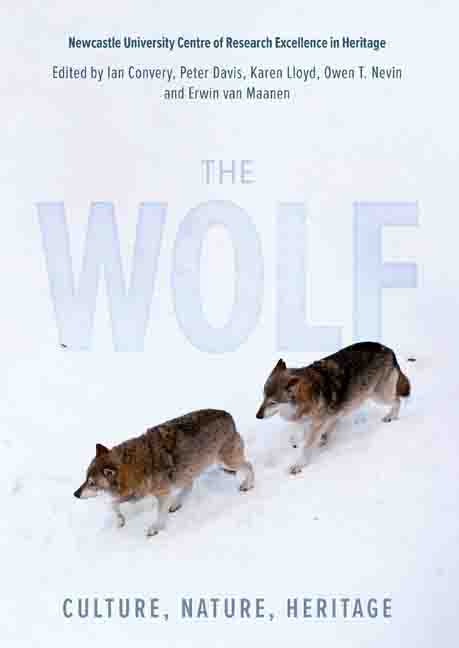Book contents
- Frontmatter
- Dedication
- Contents
- List of Illustrations
- Preface and Acknowledgments
- List of Abbreviations
- Poem: Trophic Cascade by Camille T Dungy
- Foreword
- Part I Imagining the Wolf
- Part II What Makes the Wolf
- Part III Return of the Wolf
- Part IV Personal Encounters
- Afterword: The Ecological Disadvantage of Living on an Island
- Glossary
- List of Contributors
- Index
26 - The Case for Wolves in the UK
Published online by Cambridge University Press: 10 January 2024
- Frontmatter
- Dedication
- Contents
- List of Illustrations
- Preface and Acknowledgments
- List of Abbreviations
- Poem: Trophic Cascade by Camille T Dungy
- Foreword
- Part I Imagining the Wolf
- Part II What Makes the Wolf
- Part III Return of the Wolf
- Part IV Personal Encounters
- Afterword: The Ecological Disadvantage of Living on an Island
- Glossary
- List of Contributors
- Index
Summary
As discussed extensively elsewhere in this volume, the recolonisation of Europe by wolves means that the UK increasingly becomes an outlier in its lack of apex predators. If the UK was not physically detached from mainland Europe, wolves would likely soon cross our borders (Gwynn and Symeonakis 2022). In this chapter we discuss the case for reintroducing wolves to the UK, and we draw on a now nearly 20-year-old paper by Charles Wilson (2004), who reviewed the case for large carnivore reintroductions to the UK. In the original paper, Wilson considered four main questions: Do we have enough room for large carnivores? Are large carnivores a threat to people? Would their impact on livestock, game or wildlife be unacceptable? Would the British public support reintroductions? To these four questions we have added a fifth: What is the legal context for a reintroduction?
Pioneering 18th-century English naturalist, the Reverend Gilbert White (1720–93), knew that large carnivores would have populated prehistoric Selborne. He set the scene in the opening sentences of Letter I in The Natural History and Antiquities of Selborne (White 1789):
It is reasonable to suppose that in remote ages this woody and mountainous district was inhabited only by bears and wolves. Whether the Britons ever thought it worthy [of ] their attention, is not in our power to determine: but we may safely conclude, from circumstances, that it was not unknown to the Romans.
A high point of 210m (689ft) for Selborne Hill hardly makes this a mountainous district. Possibly due to the discoveries of many hundreds of Roman copper coins at nearby Woolmer Pond in 1741, White seems to suggest that it was the Romans that first settled this landscape rather than returning hunter-gatherers in the post-glacial landscapes of the Holocene (Crane 2016). However, he made a reasonable assumption that the area was home to wolves and bears that had re-colonised Britain 13–9,900 years ago from southern refugia (Montgomery et al 2014).
- Type
- Chapter
- Information
- The WolfCulture, Nature, Heritage, pp. 295 - 314Publisher: Boydell & BrewerPrint publication year: 2023



